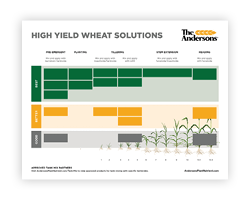Three Stages of Winter Wheat - Stage Two: Tillering and Topdress
Posted on August 03, 2021
PROVIDE IN-SEASON NUTRITION
During the Feekes 4-5 growth stage, it is time to supply nitrogen through topdress. This application will provide adequate nutrition going into the rapid growth stages. Nitrogen applied during topdress is usually applied in one of two forms: dry or liquid nitrogen.
During dry application, if spinner spreaders are used, a dry nitrogen application needs to be double-spread to achieve uniform distribution. If an application is not double-spread, the wheat field may take on a “washboard” appearance, with different areas of the field receiving different rates of nitrogen. Unfortunately, double-spreading also means double the trips across the field, double the time to cover the same acre, and double the soil compaction.
Liquid nitrogen can be easily applied with one trip across the field Zinc is also essential during topdress. Zinc helps regulate the consumption of sugars and plays an essential part in the production of protein in the crop.
One major drawback to a liquid nitrogen application is the burn that can occur on the green tissue. Most applicators use stream nozzles to minimize burn on the wheat tissue, but burn does still tend to occur behind the wheel tracks. Another problem with any nitrogen application on wheat is nitrogen stabilization and preventing the conversion to nitrous oxide or nitrate. These forms of nitrogen are unstable in soil and can be lost easily.
PLAN A SEASON LONG APPROACH
A properly-timed nutrient management program is essential for maximizing yields at harvest.

To download our High Yield Wheat Program, visit AndersonsPlantNutrient.com/HighYield
Additional Resources
Three Stages of Winter Wheat - Stage One: Pre-Emergent and Planting
Three Stages of Winter Wheat - Stage Three: Heading and Stem Extension
FOR MORE INFORMATION:
Please complete the form, and we’ll get you in touch with your Territory Manager from The Andersons.




